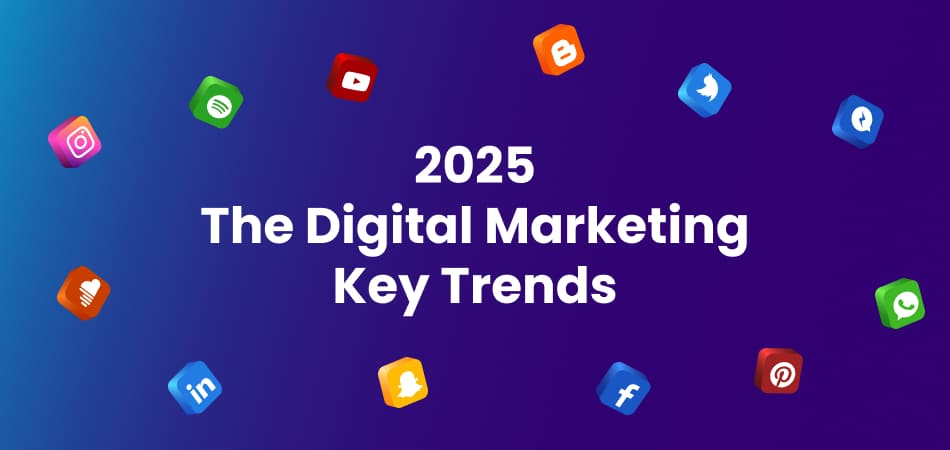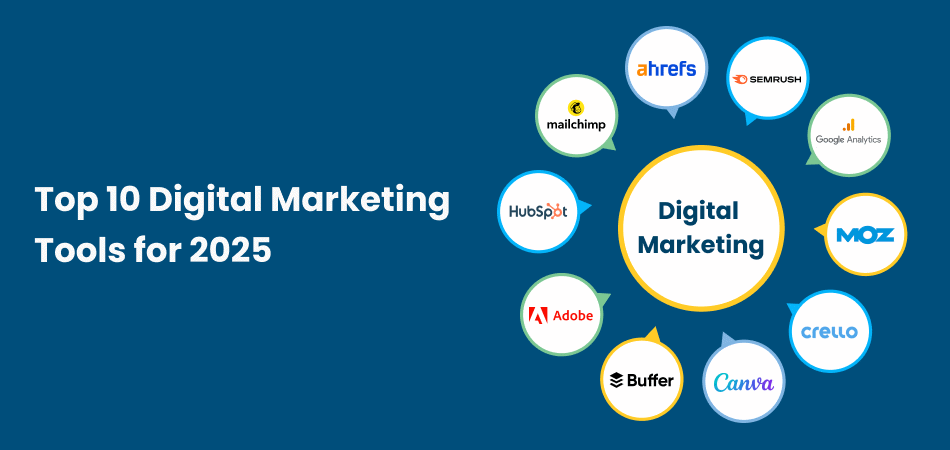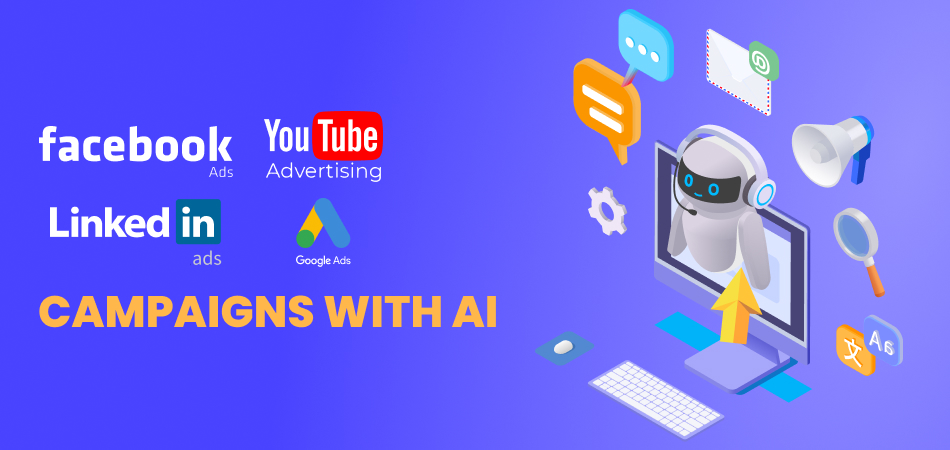As we look toward the future, digital marketing is bound to undergo some major transformations in 2025. The landscape is rapidly changing, with new technologies, evolving search behaviors, and regulatory influences affecting how businesses connect with their audiences. In this blog, we’ll explore the potential changes coming to digital marketing, focusing on Google’s future, the shift in search behavior, the importance of technical SEO, local SEO developments, and the rise of new search platforms.
The Future of Google: Challenges and Opportunities
The Effects of US Regulations and Google’s Chrome
2025 could be a defining year for Google. With the U.S. Department of Justice advising Google to sell its Chrome browser to control its expanding business, the company could face significant challenges. Chrome currently collects vast amounts of data, which is used by Google’s search engine to refine search results based on user interactions. If Chrome is sold off, Google may need to adjust its search algorithms significantly. A return to traditional backlink ranking signals could be on the horizon, which could open up new opportunities for backlink builders.
Possible Changes for Google
| Potential Change | Impact on Digital Marketing |
| Chrome Sold Off | Google might lose access to valuable user data from Chrome, forcing a shift back to backlink signals. |
| Government Involvement | Increased regulation could weaken Google’s dominance, paving the way for competitors like Baidu to rise. |
| Political Landscape | Potential changes to Google’s operations due to political connections could reshape digital marketing strategies. |
Political Influences on Google
The U.S. government has become more involved in the operations of tech giants like Google, with figures such as former President Trump advocating for weakening Google’s market power to prevent Chinese search engine Baidu’s rise. If Google survives politically, its operations might remain largely unchanged. However, businesses should prepare for the possibility of significant shifts in the digital ecosystem.
Evolving Search Behavior and Keyword Optimization
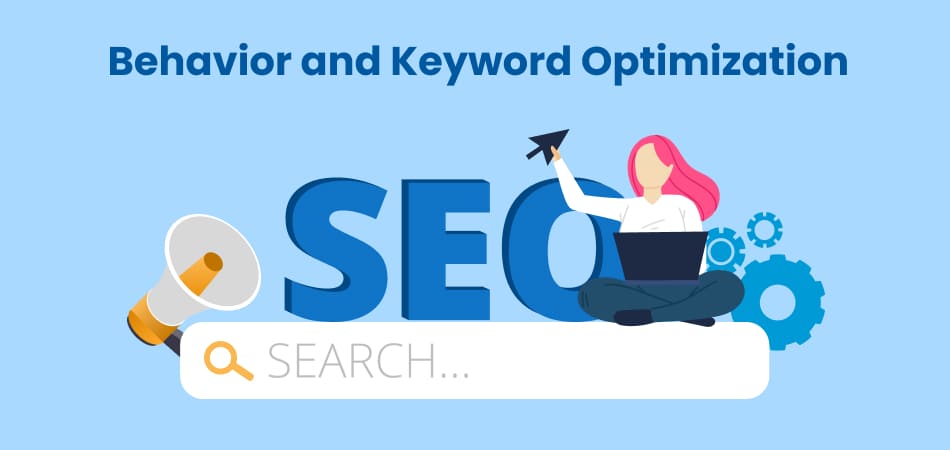
Transition from Short-Tail to Long-Tail Keywords
For years, digital marketers have relied on short-tail and long-tail keywords for SEO. Short-tail keywords were used to capture broad search traffic, while long-tail keywords targeted more specific queries. However, with the evolution of user behavior, businesses need to adapt to a more refined search pattern. Today’s users tend to search for highly specific phrases, such as “iPhone 16 Pro Bank Offer” or “Best car under fifteen thousand.”
Changing Keyword Trends
| Search Behavior | Examples | Implication for Digital Marketing |
| Specific Searches | “Best laptop under $1000,” “Electrician near me” | Businesses need to focus on niche keywords that answer specific questions. |
| Voice Search | “What’s the best way to save on a truck loan?” | Content should be optimized for long-tail and natural language queries. |
| Rating-Based Search | “Best restaurant near me with 5-star reviews” | Brands need to focus on reviews and local SEO to appear in these types of searches. |
The Rise of Chatbots and Voice Assistants
In 2024, chatbots and voice assistants like Gemini and ChatGPT began to reshape how users search for information. Instead of typing short queries, users now prefer to ask more detailed questions in the form of two- or three-line sentences. This shift means businesses need to optimize content for more conversational queries.
To stay competitive, marketers must move beyond traditional keyword optimization to focus on understanding user intent and answering questions comprehensively. Optimizing content for chatbots and voice search will be crucial in 2025.
Technical SEO: Increasing Complexity and Importance
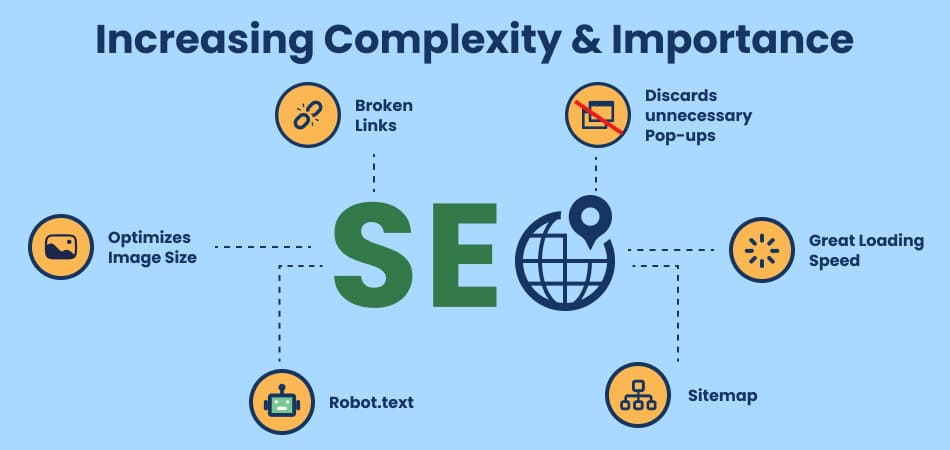
The Role of New Search Engines and Technical Specifications
As more search engines and platforms enter the market, technical SEO will continue to grow in importance. Google has strict technical guidelines that websites must follow to rank high on search results, and new platforms will introduce their own rules. This will require businesses to stay up-to-date on technical requirements across multiple platforms to ensure their visibility.
Key Technical SEO Challenges
| Technical SEO Factor | Impact in 2025 |
| AI and Smart Algorithms | With more intelligent search engines, content must be more useful and unique to be indexed. |
| New Search Engine Rules | As new search engines emerge, marketers will need to adapt to their technical specifications. |
| Content Indexing Efficiency | AI’s ability to understand content could reduce the need for repetitive indexing. |
| Web Crawling and Indexing Issues | Technically incorrect websites will face greater challenges in crawling and indexing. |
The Role of AI in Content Indexing
Artificial intelligence will continue to transform how search engines index content. Google used to rely largely on backlinks and conventional indexing techniques. However, as AI becomes more sophisticated, Google will increasingly be able to understand content without indexing repetitive or spun content. Websites will need to focus on producing high-quality, unique content that meets user needs, rather than relying on keyword stuffing and generic content.
Local SEO: Shifting Focus to Websites
Google My Business vs. Optimized Websites
While Google My Business listings currently dominate local SEO rankings, by 2025, websites will likely gain more importance in local search results. Google will prioritize well-optimized, informative websites over incomplete or generic listings. This shift means that business owners need to pay more attention to their website’s content, SEO strategies, and local optimization.
Key Local SEO Changes
| Local SEO Factor | 2025 Changes |
| Google My Business Listings | Websites will gain more importance in local SEO rankings. |
| Website Optimization | Google will prefer optimized, high-quality websites that provide comprehensive information about businesses. |
| Local Search Intent | Websites will need to provide localized solutions that match user queries like “best coffee shop in [city].” |
Diversifying Search Platforms: Beyond Google
The Emergence of New Search Platforms
While Google has long dominated the search engine market, new platforms like chatbots and voice search engines are gaining traction. These new platforms do not rely on Google’s data but instead collect information from a wide range of sources. As these platforms grow, businesses must expand their digital marketing strategies to include these emerging search engines. By doing so, they can reduce their reliance on Google and reach new audiences.
Popular Search Engines in 2025
| Search Engine | Market Share | Importance for Marketers |
| 90%+ | Still the dominant platform, but marketers must diversify. | |
| YouTube | 2nd Largest | Important for visual and video content optimization. |
| Chatbots (e.g., ChatGPT) | Emerging | Will become a significant platform for answering user queries. |
The Impact of Voice Search
Voice search is expected to continue rising in popularity, further altering the way users interact with search engines. As voice assistants become mainstream, users will increasingly perform searches through spoken queries rather than typing. This requires businesses to optimize their content for voice search, ensuring that it’s conversational and provides direct, concise answers.
Preparing for the Future: Adapting to Change
Continuous Learning and Flexibility
The key to success in digital marketing is staying informed and adaptable. The industry is constantly evolving, and those who invest in continuous learning will be the ones who thrive. This includes keeping up with emerging trends, new tools, and changing search behaviors. Flexibility in marketing strategies will allow businesses to pivot quickly as the digital landscape evolves.
Innovation and Experimentation
Innovative thinking will be essential for staying competitive in 2025. Marketers should embrace experimentation with new tools, technologies, and strategies. The ability to innovate and test new ideas will ensure that brands remain ahead of the curve.
Conclusion: Getting Around in 2025’s Digital Marketing Environment
In summary, digital marketing in 2025 will be influenced by significant changes in Google’s structure, evolving user behavior, technical SEO, local SEO, and the rise of new search platforms. Businesses that understand these changes and adapt their strategies will be well-positioned to succeed.
By staying informed, embracing innovation, and optimizing content for both keywords and user intent, marketers can ensure they remain competitive in the ever-changing world of digital marketing. Whether through voice search, AI-driven algorithms, or diversified search platforms, the future is bright for those ready to adapt.
